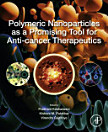Microfluidics-Aided Technologies: Platforms for Next Generation Biological Applications
About this ebook
About the author
Dr. Dhananjay Bodas completed his doctoral research in the field of Microelectronics from the Department of Electronic Science, University of Pune in 2004. He is a recipient postdoctoral awards from the Defense ministry of France and the prestigious Alexander von Humboldt Foundation in 2004 and 2006, respectively. He is currently working as a Scientist E in the Nanobioscience Group at the Agharkar Research Institute in Pune, India. He works at the interface of microtechnology, surface chemistry, and application biology. Current areas of interest are understanding flows at microscale by fabricating devices using unconventional techniques and the development of ultra-sensitive and specific diagnostic platforms to detect pathogens and development of organ-on-chip platforms.
Dr. Virendra Gajbhiye has been working in the field of nanomedicine for the last 15 years. He has a doctoral degree (Ph.D.) in Pharmaceutical Science with post-doctoral research experience at University of Wisconsin-Madison and Oregon Health and Sciences University. Since 2013 he is working as a Scientist in Nanomedicine at Agharkar Research Institute, Pune, India. He has worked extensively with polymeric nanoparticles specially dendrimers and mesoporous silica nanoparticles. His research interest lies in Nanomedicine, Targeted drug and siRNA delivery, Biomedical application of dendrimers, Biomaterials unimolecular micelles and imaging, Multifunctional polymeric nanoparticles, Nanoparticles in tissue engineering.






